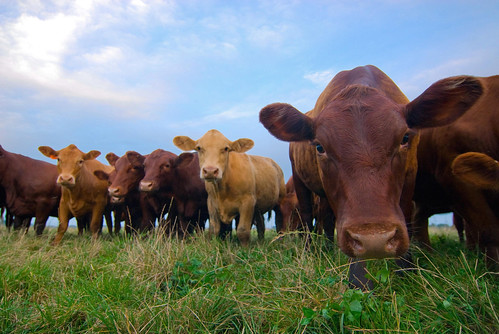
This is the first in series of Organic 101 pieces that will explore the different rules within the USDA organic regulations.
When it comes to organic foods, it’s just as important to know what isn’t allowed as what is. The organic standards are process-based, meaning they establish the rules for an entire system of farming that follows a product from its beginnings on the farm all the way to retail.
Organic products are managed according to defined processes for planting, growing, raising, and handling. For example, the USDA organic label on dairy or meat products means that the animals from which it originated were raised in living conditions that accommodated their natural behaviors, without being administered hormones or antibiotics, and while grazing on pasture grown on healthy soil. Then during processing the meat or dairy product was handled in a facility that was inspected by an organic certifier and processed without any artificial colors, preservatives, or flavors before being packaged to avoid contact with any prohibited, nonorganic substances.
A very important part of the process-based regulatory framework is the prohibition of certain methods in organic production and handling. Methods like irradiation, sewage sludge, and genetic engineering are all expressly prohibited from being used when growing or processing organic foods.
Genetic engineering in particular has drawn a lot of attention and concern from consumers and the organic community. In April 2011, the National Organic Program (NOP), a part of the USDA’s Agricultural Marketing Service, issued a policy memo that explained the relationship between genetically modified organisms (GMO) and food production under the organic standards.
The USDA organic regulations prohibit the use of GMOs, listing them as “excluded methods,” and defining those methods as “a variety of methods to genetically modify organisms or influence their growth and development by means that are not possible under natural conditions or processes…. Such prohibited methods include cell fusion, microencapsulation and macroencapsulation, and recombinant DNA technology (including gene deletion, gene doubling, introducing a foreign gene, and changing the positions of genes when achieved by recombinant DNA technology).”
To prevent GMOs from being introduced into organic production, producers do not use genetically modified seeds or other materials when planting crops. They also work with their certifiers to implement preventative practices that effectively buffer their farms from GMO contamination.
Organic food handlers and processors also ensure that their ingredients are not produced from excluded methods. Certifying agents review and audit all of ingredients--not only the agricultural ingredients but also others that are allowed in organic processing, like baking soda, yeast, dairy cultures, and vitamins--to verify that they are not genetically modified.
All of these measures are documented in operations’ organic systems plans, a crucial element of USDA organic certification that outlines detailed practices and procedures addressing how operators comply with the requirements of the organic regulations.
No matter where the product is grown or how the product is made, if it has the USDA Organic label on it, genetic engineering or genetically modified organisms are not allowed.
Look for part 2 of this series where we will explain the process for approving or prohibiting substances in organic foods.

